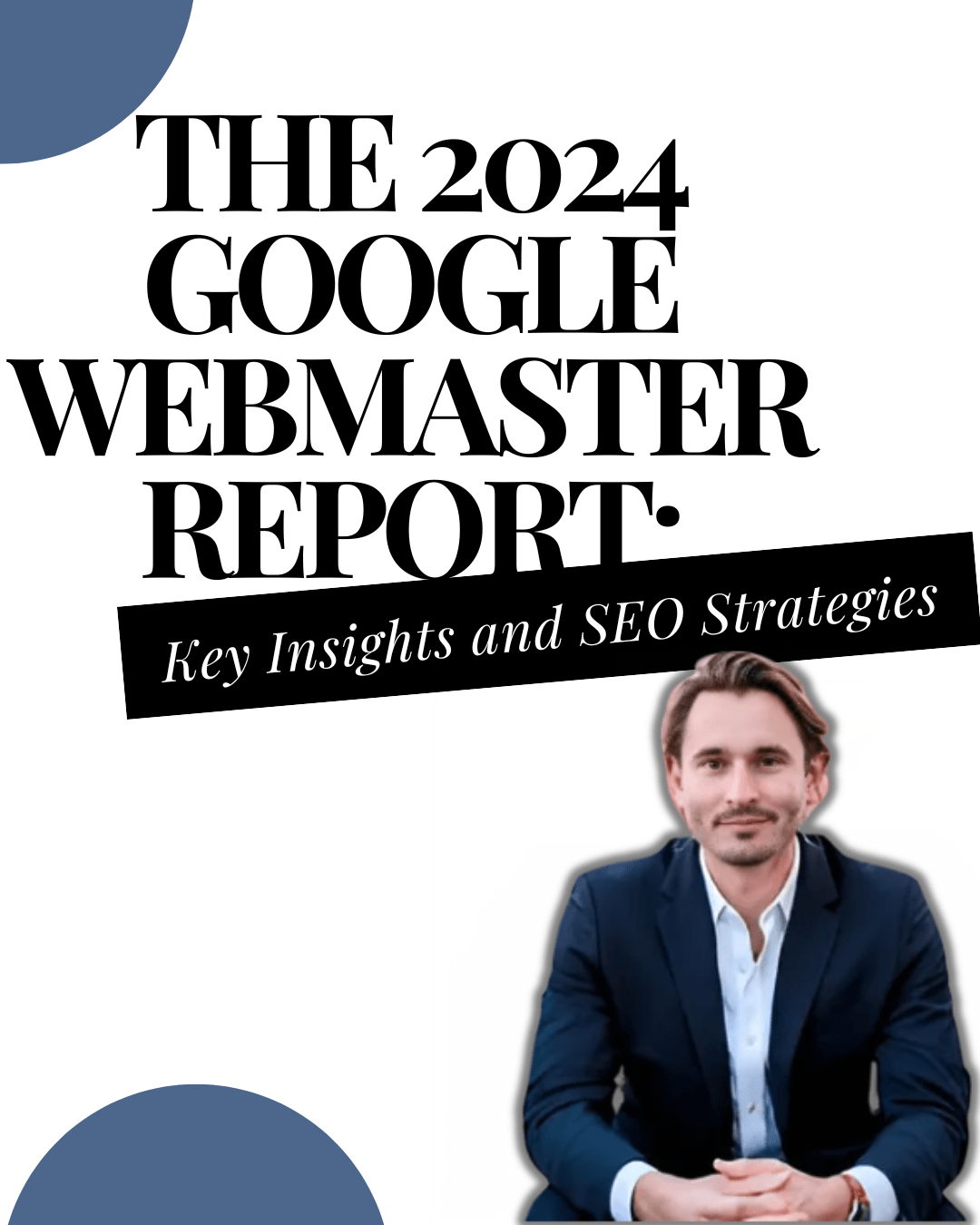In an era where technological advancements are at the forefront of shaping industries, AI and LLMs (Large Language Models) have become pivotal in redefining digital marketing landscapes. As an enthusiast immersed in the digital marketing world, I’ve observed AI’s transformative power and its paradoxical nature. This sophisticated tool, capable of both elevating and complicating the digital marketing domain, merits a nuanced exploration. Through this lens, I invite you on a journey to uncover the multifaceted roles of AI in digital marketing, reflecting on its potential to both aid and impede our efforts to connect with audiences in meaningful ways.
The Unmatched Efficiency of AI in Data Analysis and Personalization
Delving into the realm of digital marketing, I’ve witnessed first-hand how AI has reshaped the landscape of data analysis and personalization. Its unmatched efficiency in navigating through the intricate web of consumer data is nothing less than a marvel for someone like me, who constantly seeks to refine marketing strategies and enhance consumer engagement. The ability of AI to dissect and interpret vast amounts of data with astonishing speed enables me, as a marketer, to understand subtle consumer behaviors and preferences that would otherwise remain obscured.
This insight is pivotal in crafting personalized marketing messages that resonate deeply with each segment of the audience. I’ve observed how tailored communications, powered by AI-driven insights, significantly amplify engagement levels and bolster conversion rates. It’s as though we’re able to read the minds of our consumers, anticipating their needs and desires before they even articulate them. This level of personalization ensures that every interaction a consumer has with a brand feels unique and catered specifically to them, fostering a sense of individual attention that is highly valued in today’s digital age.
Moreover, AI’s prowess in personalization transcends mere communication. It extends into the realm of product recommendations, content curation, and user experience on digital platforms, making each interaction not just personalized but also incredibly relevant and timely. The dynamic nature of AI, with its continual learning from new data, ensures that the personalization it offers is not static but evolves with the consumer’s changing preferences and behaviors.
However, as I navigate through these advancements, I remain aware of the delicate balance between leveraging AI for personalization and maintaining the genuine human touch that consumers seek. The sophistication of AI in personalizing marketing efforts is undeniably transformative, yet it also challenges me to ensure that this technology complements rather than replaces the nuanced understanding and empathy that only human marketers can provide.
The Automation Advantage: Streamlining Repetitive Tasks
In my journey through the dynamic world of digital marketing, I’ve embraced the automation capabilities of AI with open arms, recognizing it as a transformative force in the realm of repetitive and time-consuming tasks. The sheer elegance with which AI systems handle operations such as scheduling social media posts, managing email marketing campaigns, and fine-tuning ad placements has been nothing short of revolutionary for me.
This innovation has afforded me the luxury of redirecting my focus toward the more nuanced aspects of marketing strategy and creative conceptualization. The distinction here is profound; whereas before, my days were mired in the minutiae of operational tasks, AI has liberated me to invest my energy in areas where human creativity and strategic thinking are indispensable. The impact of this shift cannot be overstated—by leveraging AI for automation, I’ve observed a marked enhancement in productivity and, more importantly, in the quality and innovativeness of our marketing endeavors.
However, this journey has also taught me the value of balance. As much as AI excels in automating tasks, it serves as a complement to, rather than a replacement for, the human element in digital marketing. The nuanced judgment, the creative spark, and the strategic foresight that I bring to the table remain central to our successes. AI, in this respect, acts as an enabling force, augmenting my capabilities and allowing me to channel my efforts where they are most effective.
This harmonious partnership between AI-driven automation and human creativity has reshaped my approach to digital marketing. It’s a dance of sorts, where technology and human insight move in step, each enhancing the other’s strengths. The result is a more efficient, more creative, and ultimately more impactful marketing practice, one that embraces the future without losing sight of the human touch that lies at the heart of every successful brand connection.
The Creative Conundrum: Can AI Replace Human Creativity?
Venturing deeper into the realm of AI in digital marketing, I’ve grappled with a particularly intriguing question: Can AI truly replace the nuanced artistry and emotional depth that human creativity brings to the table? It’s a question that, at its core, touches upon the essence of what makes our marketing efforts not just seen, but felt.
As I reflect on my experiences, I’ve seen AI generate content and concoct designs with a level of efficiency that’s undeniably impressive. Yet, when it comes to the creative spark that ignites a campaign, turning it from mere information to an experience that resonates with the audience on a deeply personal level, AI seems to linger at the threshold, unable to fully cross into the realm of genuine creativity. Human creativity isn’t just a matter of stringing words together or arranging visuals in an aesthetically pleasing manner. It’s about weaving narratives that touch the heart, spark the imagination, and inspire action. It’s about understanding the unspoken, feeling the pulse of cultural currents, and speaking in a voice that’s authentically human.
In my journey through the digital marketing landscape, I’ve come to view AI as a remarkable collaborator in the creative process. It serves as a tool that can inspire new directions and augment our capabilities, but the soul of a campaign—the story it tells and the emotions it evokes—remains the domain of human creativity. The depth of understanding, the empathy, and the ability to connect with another’s human experience in a way that feels both profound and personal—these are qualities that AI, for all its advancements, cannot replicate.
This isn’t to diminish the role of AI in the creative process. On the contrary, it highlights the importance of a symbiotic relationship where AI and human creativity complement each other. It’s in this partnership that the future of digital marketing creativity lies, with AI serving as a powerful ally that amplifies our creative capabilities, not as a replacement that diminishes the value of the human touch.
The Risk of Depersonalization in AI-Driven Marketing
In my journey through the labyrinth of digital marketing, a concern that persistently tugs at my conscience is the risk of depersonalization inherent in AI-driven strategies. This conundrum presents itself as a subtle irony; the very tools designed to enhance personalization can, if not judiciously managed, spiral into a vortex of impersonal and detached marketing messages. It’s a nuanced challenge, one that requires a delicate dance between embracing the power of AI and preserving the warm, human essence that forms the core of brand-to-consumer relationships.
I’ve come to realize that the allure of AI’s efficiency and the promise of streamlined marketing operations can sometimes obscure the vital importance of genuine human connections. In my efforts to leverage AI, I’ve been vigilant in monitoring the pulse of my campaigns, ensuring that they don’t devolve into a series of cold, algorithmically generated interactions. The essence of impactful marketing lies in its ability to evoke emotions, forge connections, and speak to the unique needs and desires of individuals. Stripping away the human element in pursuit of efficiency is a misstep that can render the most sophisticated marketing strategies sterile and ineffective.
My experience has taught me that maintaining this balance is not merely desirable but essential. It involves a conscious effort to imbue AI-driven initiatives with empathy, creativity, and a deep understanding of the human experience. It means recognizing when to let technology take the lead and when to step in with the nuanced judgment and emotional intelligence that only a human can provide. The objective is clear: to harness the capabilities of AI in a way that amplifies rather than diminishes the personal touch that is so crucial to building lasting relationships with consumers.
This pursuit of balance is an ongoing journey, one that demands constant vigilance and a willingness to adapt. As I navigate the ever-evolving landscape of digital marketing, my commitment to preserving the personal touch in an AI-driven world remains unwavering. The goal is not just to reach consumers but to connect with them on a level that transcends the transactional, forging bonds that are both meaningful and enduring.
Navigating Ethical Considerations and Consumer Privacy
In my voyage through the transformative landscape of AI in digital marketing, I’ve increasingly found myself at the intersection of innovation and ethics, particularly around the delicate issue of consumer privacy. The power of AI to dissect and understand consumer behavior is unparalleled, offering insights that were previously beyond our grasp. Yet, with this power comes a profound responsibility to navigate the ethical considerations that accompany such deep dives into personal data.
My approach has always been to tread this path with utmost integrity, recognizing that the trust of our consumers is not just a commodity but the foundation upon which our brand is built. The advent of AI in marketing has necessitated a renewed commitment to transparency and consent. It’s crucial, from my perspective, to openly communicate with our audience about the data we collect and how it’s used to enhance their experience. This transparency not only aligns with ethical marketing practices but also bolsters consumer trust, reinforcing their confidence in our brand.
Consent, too, has become a cornerstone of my marketing strategy in the AI era. Ensuring that consumers are fully informed and have explicitly agreed to the use of their data is non-negotiable. It’s a practice that not only respects consumer autonomy but also fortifies the relationship between brand and consumer against potential breaches of trust.
The ethical use of AI in marketing extends beyond just privacy concerns; it also encompasses the responsibility to ensure that the insights and personalizations derived from AI are used in a manner that benefits, rather than exploits, our audience. It’s a delicate balance, requiring a continuous assessment of our strategies through the lens of consumer well-being.
In my journey, I’ve learned that navigating these ethical waters is not a static task but an ongoing dialogue—a dialogue between technology and humanity, innovation and integrity. It’s about leveraging AI’s capabilities while steadfastly upholding the values that define us as ethical marketers. This balance is not just beneficial; it’s essential for sustaining a genuine connection with our audience in a world increasingly guided by algorithms.
The Future of AI in Digital Marketing: A Balanced Approach
As I ponder the trajectory of digital marketing, the integration of AI looms large on the horizon. My journey has convinced me that the key to unlocking the true potential of this technology lies in a harmonious blend of human insight and artificial intelligence. This synthesis is not merely advantageous; it’s essential for crafting marketing strategies that resonate on a human level while benefiting from the efficiency and analytics AI provides.
My vision for the future of digital marketing with AI at its core involves a collaborative partnership where AI amplifies our creative and analytical abilities without overshadowing the indispensable human element. It’s about striking the right balance—using AI to handle data-driven tasks and personalization at scale, while humans inject creativity, ethical judgment, and emotional intelligence into the mix. This approach ensures that our marketing efforts remain grounded in human experience and values, even as we venture into new realms of technological capability.
The emphasis on ethical considerations and consumer privacy will become increasingly critical as AI capabilities advance. My commitment to these principles is unwavering, and I envision a future where digital marketers collectively uphold the highest standards of transparency and consent. By doing so, we not only protect our consumers but also build deeper trust and loyalty, which are invaluable in the digital age.
In my contemplation of what lies ahead, I remain optimistic yet cautious. The path forward with AI in digital marketing is filled with possibilities, but it’s our responsibility to navigate this terrain thoughtfully. By championing a balanced approach that respects both the power of AI and the primacy of human connection, we can forge a future where digital marketing not only reaches new heights of effectiveness but also retains its soul. In this evolving landscape, our mission remains clear: to leverage AI in ways that enrich the consumer experience, foster genuine connections, and uphold our shared values. This, I believe, is the cornerstone upon which the future of digital marketing will be built.




